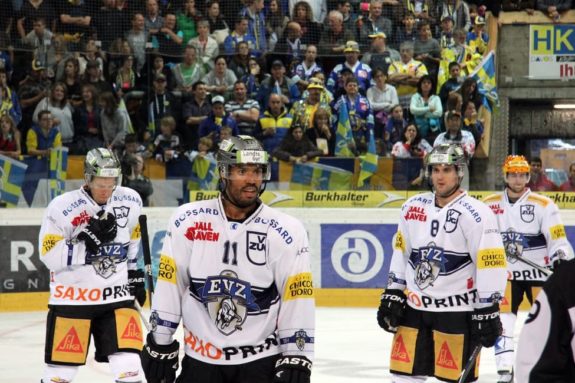Switzerland could have been a great hockey winner in 2020. Accepting the hosting responsibilities for the 2020 World Championships last spring could have helped popularize the game in the alpine nation, and make it loved by millions.
The COVID-19 pandemic shattered the dream.
Moreover, it has brought the national championship to a standstill and is about to ruin the clubs.
The State Helps with Strings Attached
Due to the drastic situation, the Swiss national government offered professional hockey clubs a saving line in the form of two stabilization loans each worth $78 million. So far, the clubs have refused to take the money, saying that they cannot accept the politicians’ treatment of hockey clubs’ employees as those enjoying luxurious salaries and lifestyles.
Related: Bandy – The Other Ice Hockey
“They bring about the opinion that everybody in ice hockey enjoys lucrative loans. That is not the case at all. I have 117 full-time employees, 25 of those represent the first team. Some earn really well. And the rest of the employees have totally normal loans,” said Patrick Lengwiler, CEO des EV Zug, in an interview with the Basler Zeitung, a newspaper from the city of Basel.

The Swiss Federal Department of Defence, Civil Protection and Sport developed the financial support package overnight. Viola Amherd, the Department’s head, presented the initiative to the public on May 13, 2020.
In an interview with the SRF, Amherd substantiated the need for the state support of professional sports, hockey clubs in particular, as follows: “Without support … the profit structures will go partially under, and the youth sport as well becomes impossible. Sport is also an important economic factor employing 100,000 people in Switzerland and contributing seven percent to the GDP.”
The support package was offered as a loan, and it came with conditions attached. Some of them might be hard to accept for the clubs. In order to tap into the state coffers, the clubs must freeze volumes of their budgets for the whole duration of the loan. Besides, the clubs are expected to decrease the salaries during the next three years by 20 percent. The money borrowed must be repaid.
Another condition was that the clubs making use of the loans had to undertake to create security budgets, that would ensure their survival for at least six months, should another situation of force majeure occur. And, of course, the clubs can only take the money if they continue playing their games in the current and the next seasons.
So far, the clubs in Switzerland are not playing and intend to start their new season in August 2020. Whether they will make use of the state’s offering remains to be seen.
The League Mulls a Salary Cap
The Swiss National League, however, did not denounce the state’s offer. On the contrary, the league’s CEO Denis Vaucher declared that signing a memorandum of understanding with the state on the financial support, showed well how drastic the situation was.

On its own initiative, the league suggested introducing so-called “soft salary caps.” “Hard salary caps” would be impossible in the Swiss legal and economic environment, which favors competition the most. Therefore, the league would promote introducing the caps alongside with allowing teams to go over the salary ceiling.
Paying the teams bigger than suggested budgets would be double costly for the clubs, however. Such clubs would then need to pay “fines” into a special fond designed for rocky times.
Related: Who Invented Hockey?
Vaucher meets criticism from the clubs as well. Still, he sticks to his opinion that “the previous system devoid of any regulations has definitely failed. The more money was going into the system, the higher would the salaries grow.” He is positive that the current crisis is presenting a chance for revisiting the work of the system and reforming it towards sustainability.
The good news from Switzerland is that the clubs have started selling season tickets with the first games planned for August 2020. Club communications sound upbeat and convey the impression that they could do without the state support.